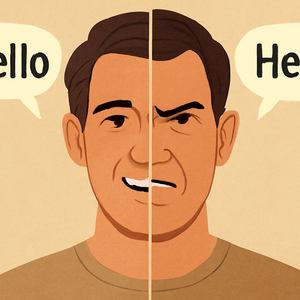The Intersection of Technology and Law: Emerging Trends in Data Privacy

Artificial intelligence has emerged as a transformative force across industries, revolutionizing how data is processed, analyzed, and utilized. AI systems can analyze vast datasets quickly, providing organizations with insights that were previously unattainable. However, this capability raises significant concerns regarding data privacy. AI often requires access to personal data, increasing the risk of misuse or unauthorized access. For instance, predictive analytics tools used in healthcare can inadvertently expose sensitive patient information if not properly regulated. Moreover, the algorithms that drive AI applications can perpetuate existing biases present in the training data, leading to discriminatory outcomes. This reality has prompted lawmakers to consider new regulations aimed at protecting individual privacy while ensuring fairness and transparency in AI applications. The European Union’s proposed AI Act exemplifies the evolving legislative landscape, emphasizing accountability for AI developers and users and aiming to mitigate risks associated with bias and privacy violations.
Blockchain Technology and Data Sovereignty
Blockchain technology promises to enhance data security and privacy by offering a decentralized approach to data management. With its immutable nature, blockchain allows individuals to have greater control over their personal information, enabling selective sharing while minimizing the risks of data breaches. However, the legal implications of blockchain are intricate. For example, while blockchain’s transparency can foster trust, it also creates challenges concerning compliance with data privacy laws like the General Data Protection Regulation (GDPR), which includes the right to be forgotten. The inherent difficulty of deleting data from a blockchain raises questions about how organizations can ensure compliance without compromising the benefits that blockchain offers. As businesses explore blockchain applications, legal experts must navigate these complexities, developing frameworks that reconcile innovative potential with the necessity of protecting individual rights.
The Role of IoT in Data Privacy Challenges
The proliferation of Internet of Things (IoT) devices adds another layer of complexity to the data privacy landscape. From smart home devices to wearables, IoT devices continuously collect vast amounts of personal data, often without users fully understanding how their information is utilized or shared. This lack of transparency can erode trust and trigger regulatory scrutiny. In light of these challenges, lawmakers are beginning to introduce specific regulations targeting IoT devices to protect consumer data. For example, California's IoT Security Law requires manufacturers of connected devices to implement reasonable security features. As IoT technology continues to evolve, the legal framework must keep pace to ensure that privacy protections are not an afterthought but an integral component of technology design and implementation.
Future Legislation and Compliance Implications
The intersection of technology and law is ushering in a new era of data privacy legislation. Governments around the globe are recognizing the urgency to update existing laws and create new regulations that reflect the realities of an increasingly digital society. This includes not only traditional data protection laws but also sector-specific regulations addressing unique challenges posed by emerging technologies. For businesses, this evolving landscape means that compliance is becoming more complex and resource-intensive. Organizations must stay informed about the latest legal developments and ensure that their data practices align with both current and anticipated regulations. This necessitates a proactive approach that includes regular audits, employee training, and the implementation of robust data governance frameworks.
The convergence of technology and law is fundamentally reshaping the future of data privacy. As advancements such as AI, blockchain, and IoT transform how data is collected, processed, and stored, the legal framework must adapt accordingly. For legal professionals, this presents both challenges and opportunities. Staying ahead of emerging trends and understanding the implications of new technologies is crucial for guiding organizations through the complexities of data privacy compliance. Ultimately, the goal is to strike a balance that fosters innovation while safeguarding individual rights, ensuring that privacy remains a fundamental principle in our increasingly digital world. In this context, the demand for data privacy lawyers with expertise in GDPR, CCPA, and other relevant regulations is surging, creating diverse career opportunities for individuals across the legal landscape.
Data Privacy Counsel
Large law firms, tech companies (e.g., Google, Facebook), financial institutions
Core Responsibilities
Advise organizations on compliance with data protection laws such as GDPR and CCPA.
Draft and negotiate privacy policies, data processing agreements, and terms of service.
Conduct audits and risk assessments to identify potential compliance gaps.
Required Skills
Strong knowledge of data privacy regulations and legal frameworks.
Exceptional analytical and problem-solving skills.
Experience with privacy impact assessments and data mapping.
Compliance Manager – Data Privacy
Corporations in sectors like healthcare, finance, and technology
Core Responsibilities
Develop and implement comprehensive compliance programs focused on data privacy.
Monitor and analyze changes in legislation that affect organizational policies.
Train employees on data privacy best practices and legal obligations.
Required Skills
Proven experience in compliance management or regulatory affairs.
Excellent communication skills and ability to work cross-functionally.
Familiarity with compliance management software and tools.
Privacy Engineer
Tech startups, large technology firms (e.g., Microsoft, Amazon), consulting firms
Core Responsibilities
Design and implement privacy-preserving technologies in software and systems.
Collaborate with product teams to integrate privacy-by-design principles.
Conduct privacy risk assessments of new products and services.
Required Skills
Proficiency in programming languages (e.g., Python, Java) and data encryption techniques.
Strong understanding of data architectures and privacy technologies.
Experience with frameworks like NIST Privacy Framework or ISO 27701.
Data Protection Officer (DPO)
Public sector organizations, large enterprises, multinational corporations
Core Responsibilities
Serve as the primary point of contact for data protection issues within the organization.
Oversee data processing activities and ensure compliance with applicable laws.
Report directly to senior management on data protection strategies and compliance status.
Required Skills
Extensive knowledge of privacy regulations and data protection best practices.
Strong leadership and project management abilities.
Certification in data protection (e.g., CIPP/E, CIPM) is highly desirable.
Cybersecurity Policy Analyst
Government agencies, cybersecurity firms, research institutions
Core Responsibilities
Analyze and evaluate policies related to data security and privacy within organizations.
Recommend enhancements to existing cybersecurity frameworks based on legal and regulatory requirements.
Collaborate with IT and legal teams to ensure compliance and mitigate risks.
Required Skills
Understanding of cybersecurity principles and data breach implications.
Strong research and analytical skills, with the ability to interpret complex regulations.
Familiarity with risk management frameworks (e.g., NIST, ISO) and security technologies.


